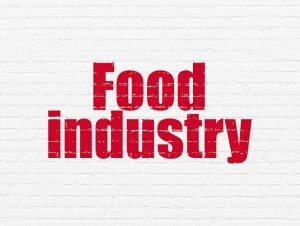
Snapshots of Food Industry News
Rakyan Beverages raises $4.5m in series B funding
Rakyan Beverages Pvt Ltd has raised close to $4.5 million in series B funding from Sequoia Capital, Saama Capital Management Ltd, and DSG Consumer Partners.
The maker of organic cold-pressed juices is well known for the brand RAW Pressery which is in high demand among fitness enthusiasts. The huge investment is being seen as an endorsement for the continued demand for cold-pressed beverages from urban households. Raw Pressery a lifestyle brand and is sold as an upmarket product. Among the favorite beverages are cold-pressed apple, beetroot, ginger, carrot and lemon juices as detox drinks. Cold-pressed juices became popular when they began to be endorsed by companies and celebrities as beneficial since they were made with high-pressure processing (HPP) technology. The process entails applying high pressure on fruits and vegetables using hydraulic presses to extract juice from them which keeps them nutritious.
Rakyan started the company in Mumbai through a home-subscription model before selling in supermarkets such as Foodhall. It now sells in six cities, including Mumbai and Bengaluru. Rakyan is planning to change tactics and will use the funds to expand capacity and launch a range of low-priced beverages, cold soups, and smoothies. They will also quadruple distribution and increase to 1,500 outlets and set up a modern cold-pressed juice facility that will help it serve another six markets. In India, the cold-pressed juice is still small, urban-centric beverage. The market for wellness products is growing fast and that is why cold-pressed juices are becoming popular. According to the Boston Consulting Group (BCG) beverages and fruit juices is one of the fastest growing categories in the packaged consumer goods.
Heritage Foods looking at Rs.1000crore turnover by 2019
Heritage Foods is eyeing a turnover of Rs.1000crore by FY19 and that is why the Hyderabad based company plans to invest Rs.20crore a year to expand stores. The company wishes to expand stores in Bengaluru, Chennai, and Hyderabad. The trading space they are looking to add on is between 75000 to 1, 00, 000 sq. ft. a year. Presently Heritage Foods has a turnover of Rs.600crore from around 105 operational stores.
The company has also appointed a management consultancy firm KPMG to find strategic partners for them. They are also looking for options that will enable them to turn their retrial operations profitable in the next two years. They are also stepping their investments in technology for e-commerce pilot projects in food and grocery. The company is well entrenched in the bakery business in retail as well as B2B space. In B2B it supplies to KFC, Taj Hotels, Marriot, Pizza Hut, etc. Heritage Food COO Dharmendra Mathai has also been selected as one of the top 100 influential leaders at the South Asia Retain Congress in 2016.
Tata hopes to speed up Starbucks store expansion
Issues with FSSAI and some retooling moves had slowed down the Starbuck expansion. However, Tata Global Beverages has now retooled and is all set to increase its coffee chain network more energetically. In June 2015 Tata Starbucks Pvt Ltd had suspended the use of some ingredients in its coffee outlets as they were not approved by FSSAI.
FSSAI had also rejected the company’s application for 32 products. This had the effect of a forcible slowdown as Tata Starbucks had to re-engineer the product portfolio according to India regulation requirements. Now they have their products ready and are all geared to focus on the rollout and expansion. Presently the total number of stores stands at 79 out of which seven stores were added in 2015. The company is once again focused on becoming the largest market outside North America along with China.
Uflex hopes to double revenue in 4-5 years to $2 billion
The packaging company Uflex is hoping to double its revenues to $2 billion in the coming 5 years as the flexible packaging market is showing growth on demand. The use of flexi packaging in personal care, healthcare, pharmaceuticals, and food and beverages has become important with changing lifestyles. The trend of shopping malls and the expansion of modern organized retail has pushed the demand for packaged foods further. The Indian flexible packaging industry has been growing at the rate of 15-17 percent annually and is expected to reach $32 billion in 2020. Presently barely 20 percent of goods are sold in packaged form. This is because traditional retail is carried out through local Kirana shops and almost 80 percent of items are sold loose.
The company intends to tap into the gap and provide innovative products through their sales and service network across the globe. They also believe in focusing on operations in a way that allows them to deliver innovative products early to reap early mover advantage. Uflex has state-of-the-art manufacturing facilities in Noida, Jammu, and Malanpur. An aseptic packaging plant for packing liquid products is coming up in Sanand, Gujarat with a capex of Rs.580crore in the first phase. Uflex is India’s largest flexible packaging company and is emerging as a global player. With the packaging coming for liquids, Uflex will complete the entire bouquet of product offering which currently spans across solids, semi-solids, pastes, gels, viscous fluids, powders and granular materials.
Leave a Reply